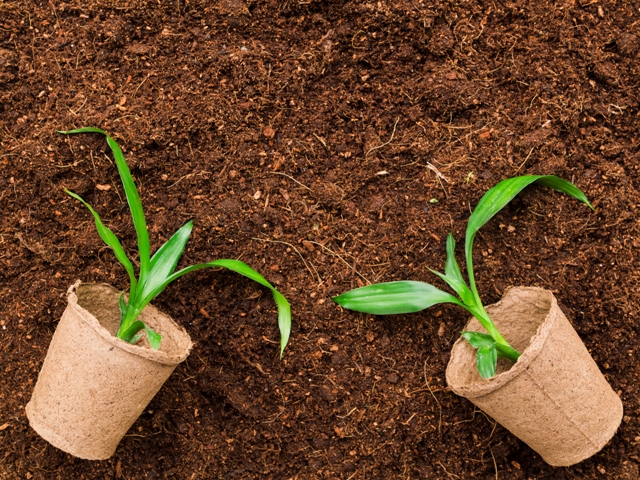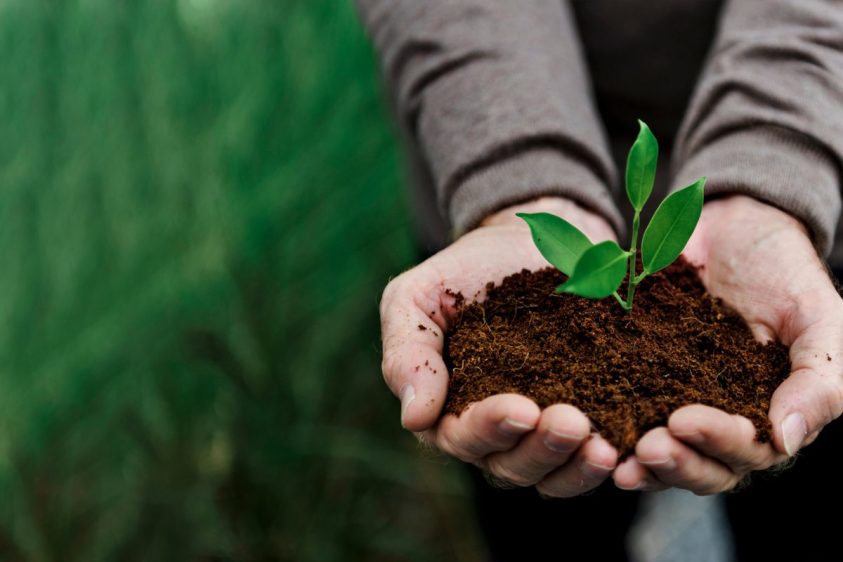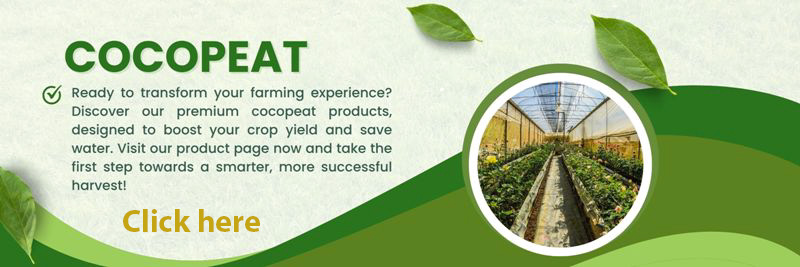Introduction: The Struggles of Iraqi Farmers
Every day, thousands of Iraqi farmers battle against tough soil, relentless heat, and, above all, a severe lack of water. These challenges make growing healthy crops not just difficult, but sometimes impossible. Traditional farming methods drain precious resources, and with climate change, the situation only gets worse. Many farmers are asking: Is there a better way? The answer could lie in a simple, natural material—cocopeat.

What Is Cocopeat? A Simple Explanation
Cocopeat is a type of soil or growing medium for plants, and it is a natural, eco-friendly material derived from coconut husks. It looks like soft, brown soil, but in fact, it consists of the fibers left after extracting coconut fiber. Unlike regular soil, cocopeat is lightweight, clean, and excellent at retaining water. Today, it is used worldwide, especially in greenhouses and modern farms, as a substitute for traditional soil.
Key Benefits of Cocopeat for Iraqi Farmers
1. Excellent Water Retention
Cocopeat can absorb up to 8 times its weight in water. In Iraq, where water is scarce, this means less irrigation and more savings.
2. Healthy Root Growth
Cocopeat provides excellent aeration for roots, preventing diseases and allowing plants to grow stronger and faster.
3. Clean and Pest-Free
Unlike soil, cocopeat contains no weed seeds or pathogens. Your plants stay healthy, and you spend less on chemicals.
4. Environmentally Friendly
Cocopeat is 100% natural and renewable. It supports sustainable farming and reduces your environmental footprint.
5. Cost-Effective
Though the initial cost may seem higher, cocopeat lasts for years and reduces your need for water, fertilizers, and pesticides. This means more profit in the long run.

Cocopeat
Scientific Uses: How Cocopeat Is Used in Modern Farming
Cocopeat is popular in hydroponics, greenhouse farming, and seed germination. It creates the perfect environment for young plants to take root and grow quickly. Many agricultural researchers recommend it for growing vegetables, flowers, and even fruit trees, especially in dry climates.
Success Stories from Neighboring Arab Countries
Countries like the UAE and Saudi Arabia have already embraced cocopeat in their greenhouses. Farmers there report up to 40% less water usage and healthier, more productive crops. These real-world results prove that cocopeat can make a real difference especially in arid regions like Iraq.
Types of Cocopeat: Fine, Medium, and Coco Chips
Fine Cocopeat is perfect for starting seedlings. Its soft, small particles hold moisture and support delicate young roots.
Medium Cocopeat is ideal for potting and as the main growing substrate. It balances water retention with good aeration, making it suitable for most crops and flowers.
Coco Chips are larger chunks, perfect for orchids and plants needing excellent drainage and aeration.
Choosing the right type means better results and healthier plants for every stage of growth.
Worried About Cost? Here’s the Truth
Some farmers worry about the price of cocopeat. But think of it as an investment: You use less water, fewer fertilizers, and your crops grow better. Over time, the savings add up, and your profits increase. Cocopeat can be reused for several seasons, making it much more economical than it first appears.
Easy to Use For Every Farmer
You don’t need to be an expert to use cocopeat. Just open the package, add water, and it’s ready to use. Mix it with soil or use it alone in pots or greenhouses. Its simple usage makes modern farming accessible to everyone.
Ready to Transform Your Farm? Contact Maya for Free Consultation!
If you’re ready to boost your yields, save water, and join the future of farming, cocopeat is your solution. At Maya, we offer the highest quality cocopeat, tailored advice, and free consultation to help you get started. Don’t wait—reach out to us today and see how your farm can thrive with cocopeat!


